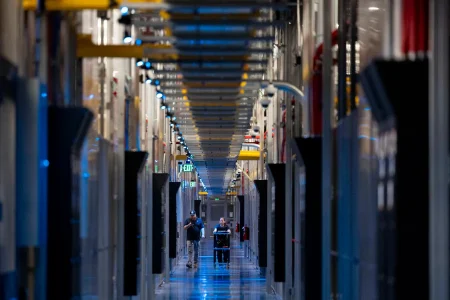Legal AI Market Sees Rapid Growth as Legora Secures Major Funding
In a significant development for the legal technology sector, Legora is in discussions to secure funding at a remarkable $1.8 billion valuation, highlighting the explosive growth in AI-powered legal tools. The Swedish startup, which provides artificial intelligence solutions for law firms, is reportedly raising between $100 million and $150 million, with Bessemer Venture Partners taking the lead in this investment round. This funding comes just four months after Legora’s previous $80 million Series B round, which valued the company at $675 million. The dramatic increase in valuation reflects both Legora’s impressive growth trajectory—having scaled from $4 million to $23 million in annual recurring revenue—and the broader enthusiasm for AI applications in the legal industry. Though currently only a small portion of its revenue comes from U.S. customers, the company is projecting substantial growth, expecting to reach $40 million in annual recurring revenue this year.
Behind Legora’s success is 25-year-old Swedish entrepreneur Max Junestrand, who founded the company in 2023 despite having no formal legal background. Junestrand’s approach was refreshingly straightforward—he interviewed approximately 100 lawyers, often reaching out via LinkedIn and offering to compensate them at their hourly rates for lunch meetings to understand the intricacies of legal work. This grassroots research formed the foundation for Legora’s product development, resulting in AI software that seamlessly integrates into lawyers’ existing workflows through familiar tools like Microsoft Word. The company has rapidly expanded its customer base to include 300 law firms, including prestigious names like Cleary Gottlieb and Goodwin, and has grown its team to 100 employees. As a Y Combinator alumnus, Junestrand represents a new generation of entrepreneurs who are using AI to transform traditionally conservative industries.
Legora’s AI-powered platform addresses some of the most time-consuming aspects of legal work, offering solutions that can analyze thousands of documents simultaneously, conduct comprehensive research across various databases, and assist with contract drafting and editing. By integrating these capabilities into everyday tools that lawyers already use, the company has created a frictionless user experience that enhances productivity without disrupting established workflows. This practical approach to implementing AI in legal practice has resonated with law firms looking to improve efficiency while maintaining high standards of service. The technology promises to eliminate many of the repetitive tasks that have traditionally consumed junior lawyers’ time, potentially transforming how legal services are delivered and priced in the future.
The substantial investment in Legora is part of a broader trend of venture capital flowing into legal AI startups. In recent months, the sector has seen remarkable funding activity, with companies like Harvey raising $300 million at a $5 billion valuation and reporting more than $100 million in annual recurring revenue. Similarly, Eve, which focuses on AI solutions for plaintiff lawyers, recently announced $103 million in funding at a $1 billion valuation and claims to serve more than 450 law firms. According to Crunchbase data, AI startups in the legal sector have collectively raised an impressive $2.4 billion in funding this year alone. This surge in investment reflects growing confidence in the potential for AI to transform legal services, creating opportunities for innovative companies to establish leadership positions in this rapidly evolving market.
The legal profession, long characterized by its tradition and resistance to technological change, has emerged as a surprisingly fertile ground for AI innovation. A 2023 Goldman Sachs study estimated that approximately 44 percent of legal work could potentially be automated, highlighting the significant efficiency gains possible through technological adoption. Contrary to initial expectations that AI would primarily impact low-skill occupations, highly skilled professions like law, medicine, and programming have become primary testing grounds for advanced AI tools. The sometimes tedious and repetitive nature of certain legal tasks—document review, due diligence, contract analysis, and legal research—makes them particularly well-suited for augmentation or automation through AI. This alignment between technological capabilities and industry needs has created substantial opportunities for companies like Legora to deliver meaningful value to legal practitioners.
As the legal AI market continues to heat up, we’re witnessing a fundamental shift in how legal services may be delivered in the future. The rapid adoption of AI tools by law firms signals a recognition that technology can enhance rather than replace the expertise of human lawyers, allowing them to focus on higher-value activities that require judgment, creativity, and emotional intelligence. For law firms, embracing these technologies has become increasingly necessary to remain competitive in a changing marketplace where clients expect greater efficiency and cost-effectiveness. For the legal profession as a whole, this technological evolution may ultimately expand access to legal services by reducing costs and increasing capacity. While challenges remain—particularly around ensuring accuracy, maintaining confidentiality, and navigating ethical considerations—the trajectory is clear: artificial intelligence is becoming an integral part of the modern legal practice, with companies like Legora leading the way in this transformation.















